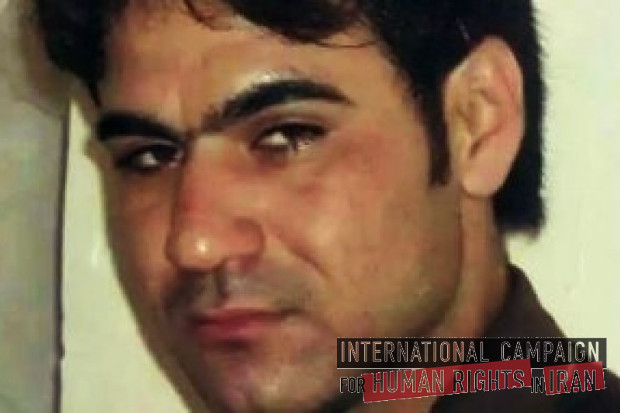
Prosecutor: “As long as he continues his hunger strike, he will stay in solitary confinement and will die there.”
Kurdish political prisoner Ayoub Assadi has been placed in solitary confinement to force him to end his hunger strike even though medical staff at Kashmar Prison’s clinic in Iran’s Razavi Khorasan Province had recommended his immediate hospitalization.
“The prosecutor of Kashmar has told one of Ayoub’s close relatives that as long as he continues his hunger strike, he will stay in solitary confinement and will die there,” a source knowledgeable about the case told the International Campaign for Human Rights in Iran. “He is suffering from a herniated disc and asthma and he has requested medical treatment many times, but the prison officials say they cannot release him for treatment because his case is ‘too sensitive.’”
“Ayoub was examined by staff at the prison infirmary and they said he should definitely be transferred to the hospital, but Kashmar’s prosecutor has so far refused to approve the request,” said the source, who is a human rights activist.
Assadi started his hunger strike on June 7, 2016 to protest the authorities’ refusal to approve any of his furlough (temporary leave) requests since his incarceration on June 15, 2011.
In 2012 he was tried at Branch 1 of the Revolutionary Court presided by Judge Hassan Babaee in Sanandaj, the capital of Kurdistan Province in northwestern Iran, and was sentenced to 20 years’ imprisonment for his alleged collaboration with the Komala, a Kurdish separatist group based in Iran and Iraq.
Tortured in Prison Custody
On June 15, 2011 agents of the Islamic Revolutionary Guards (IRGC) arrested Assadi on the outskirts of the village of Bouriyeh, near the city of Sarvabad in Iran’s Kurdistan Province. During his two-month interrogation period he was flogged with a cable wire and plastic hose on his head, the soles of his feet, and his testicles, the source told the Campaign.
“A few weeks ago, Ayoub wrote a letter to the Kashmar Prison officials and threatened to go on hunger strike if his request for furlough was not approved,” said the source. “The officials told him to wait so they could consult with higher authorities, but on June 6 the case judge met Ayoub and told him that the Kashmar prosecutor and the IRGC office in Mashhad will not agree to his furlough until he serves at least 10 years of his sentence. A day later, Ayoub started his hunger strike.”
Source: International Campaign for Human Rights in Iran